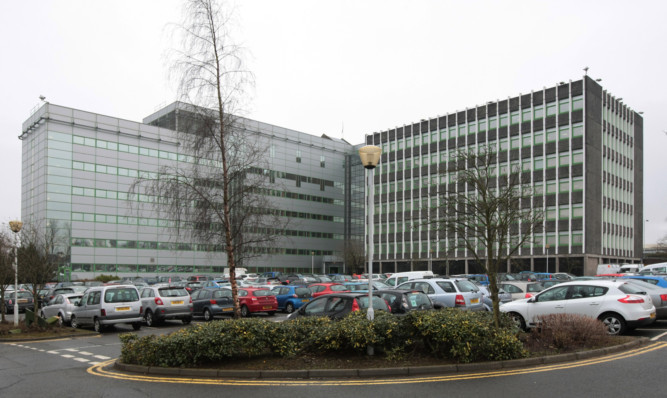Fife Council faces a “perfect storm” of public expenditure reductions and increasing demand for services as it battles a budget gap of around £100 million over four years.
The warning has been sounded by Fife Council’s executive director for finance Brian Livingston, who said that an “extremely challenging period” lay ahead.
The message prompted Fife Council’s cross-party leaders to agree to work together amid warnings that the public had not yet grasped the full scale of the budget gap and the potential consequences that cuts could have.
The council has pledged to protect frontline services as far as possible but has emphasised that continuing to do what it currently does “is not sustainable in the long term”.
In his report to Fife Council’s executive committee in Glenrothes, Mr Livingston said the council faces a significant financial challenge in the four-year period to 2017-18 as a direct consequence of public spending reductions introduced by the UK Government as it seeks to eliminate its structural budget deficit.
Mr Livingston said: “As a result of continuing global financial pressures, including sovereign debt issues in the eurozone, the latest treasury estimates indicate that it will take longer to eliminate the budget deficit than was first envisaged/planned.
“Notwithstanding the lack of absolute certainty everything points to the fact that the fiscal challenge will continue to be tough beyond 2014-15 and faced with such a challenging financial environment it is important to take a medium to long term view in relation to financial planning.
“In considering the future demand for public services it is important to recognise the change in demographics over time.
“The key points from a financial planning perspective are a marginal increase in pre-school and school age children, a decline in the working age population and a significant increase in the elderly, particularly the 75+ age group. This population shift has implications for the way resources are allocated across council services.”
Mr Livingston said that economic and financial forecasts beyond 2015-16 are “very difficult to call” given the uncertainty caused by the Scottish independence referendum in September 2014.
However, he said analysts forecast a real terms cut in resources to Scottish local government of around 3% per annum. This had been used as the basis for forecasting Fife’s resources for the period to 2017-18.
Mr Livingston said Fife Council faced a budget gap of £7.4 million in 2014-15 rising to £102m in 2017-18 although it would still be spending around £850m annually.
He said: “It is important when considering the budget to maintain at least a three year focus as proposals to deliver the scale of savings required in 2014-15 and future years will undoubtedly have a significant lead in time.
Fife Council leader Alex Rowley called on council officers to now work up a consultation on proposals to balance the budget over the next four years. He said this should be kept under review by the council’s cross-party leaders’ group.
He said it was reasonable to assume that £25m would have to be saved per year over four years so that a “cliff edge” was not reached or so that the problem was not merely passed on to the next council administration.
He said that there were “really difficult decisions” to be made and the council had to be as “open and transparent” as it can be.
Conservative group leader Dave Dempsey said efficiency and value for money could not be underestimated.
He noted, however, that demand was not always measured by finance.
“People do not care how much it costs to fix the roads,” he said.
“They just want the roads fixed.”
LibDem group leader Tim Brett said he had no problem with the cross-party leaders’ group discussing budget proposals.
But as these meetings were held in private and therefore not open to scrutiny, it was essential that policy decisions came through the executive committee and full Fife Council for open examination.
Mr Rowley said it would be the intention for the cross-party leaders group to feed into the committee process.
SNP group leader Peter Grant said he was pleased to see that the Labour leader did not want to leave a “busted flush” for the next council administration.
He said nothing changes the fact that it is going to be very difficult for this and the next council administration.
